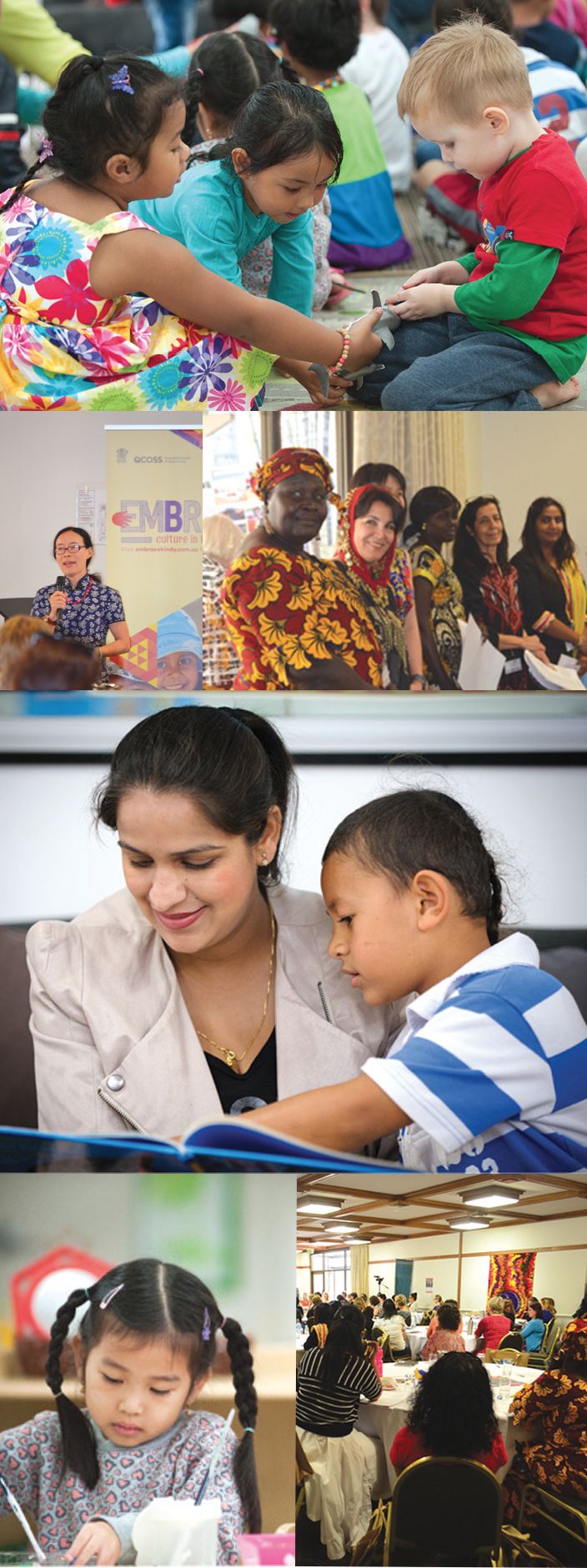
At a recent conference run by the Queensland Council of Social Service (QCOSS), various issues and solutions were proposed in order to boost the number of families from linguistically and culturally diverse backgrounds participating in early learning programs. Here QCOSS Program Leader Cherie Lamb, discusses the focus of the Embracing Cultural Diversity in Early Childhood Conference on helping vulnerable social groups by creating safe, accessible and inclusive learning environments.
The first five years of a child’s life are the most important and can set them up for a life filled with opportunity, social and economic wellbeing and good health. Sadly, as research shows, this is not the future waiting for many children who enter Australia as migrants or refugees from Language Backgrounds Other Than English (LBOTE).
The Embracing Cultural Diversity in Early Childhood Conference brought together a diverse range of workers and keynote speakers from more than 60 early childhood and family support services, to identify gaps and barriers in the early childhood education and care (ECEC) sector.
There were a number of recurring themes identified including:
- the high cost of ECEC due to fees, transport, clothing and other supplies
- the lack of transport in many rural, remote and outer urban areas limiting access to ECEC, and
- the lack of subsidies available for refugees and asylum seekers to mitigate the high cost of ECEC attendance amidst the competing priorities of resettlement.
Speakers and delegates reiterated the urgent need to remove these structural barriers to ensure children can actually afford to attend ECEC programs. Proposed reform would include:
- universal access to free kindergarten programs and/or high quality early learning environments
- extending the Kindy Plus subsidy to refugees and asylum seekers, and
- working with the Federal Government before the Family Assistance Legislation Amendment (Jobs and Families Child Care Package) is passed by parliament as there are currently aspects of the Bill which are likely to act as a disincentive to ECEC participation.
Conference attendees also discussed the importance of employing more workers from Aboriginal and Torres Strait Islander backgrounds and bilingual/bicultural workers from refugee backgrounds who reflect the ethnic profile of an area.
These workers are able to work both within and across services and have been invaluable assets to many of the services represented at the conference because of their ability to engage with families, build a link between communities and ECEC services, and to provide a sustainable ongoing model of inclusion.
Culturally inclusive programs
The recently released Australian Early Development Census (AEDC) National Report states that in 2015, 94% of children with a LBOTE and not proficient in English were developmentally vulnerable. Research undertaken by the Australian Institute of Health and Welfare (AIWH) in 2015 shows a range of developmental advantages for bilingual children. However, bilingual children with poorly developed English show poorer outcomes across broad health and psychosocial domains.
Many families, due to significant language and cultural barriers, are unable to enrol their children into ECEC programs and they often do not have the literacy skills required to fill in complex enrolment forms without assistance. Many parents also lack understanding of the importance of kindergarten and its connection to lifelong educational and employment opportunities.
Research tells us that “children living in households where English is not the main language benefit significantly from attending formal child care”, but these children are less likely to participate in ECEC compared to the rest of the population.
It is therefore critical to provide opportunities for bilingual children to develop English language skills before they enter school. The best way to do this is through their active participation in a quality early childhood program such as a government approved kindergarten program. For kindergarten participation to occur, it needs to be affordable, accessible and of high quality. Kindergarten is currently not universally accessible to all children, particularly those from migrant and refugee backgrounds, so firstly the cost barriers must be removed.


































































































































